Table of Contents
ToggleRunning a small business is a wild ride filled with highs, lows, and the occasional unexpected twist—like tax season. For many, it feels like a game of dodgeball where the IRS is the player aiming right at them. But what if there were strategies that could turn the tables and help small business owners keep more of their hard-earned cash?
Understanding Tax Saving Strategies for Small Business Owners
Navigating tax challenges is essential for small business owners. Effective tax saving strategies can significantly enhance profitability and ensure compliance.
The Importance of Tax Planning
Tax planning helps small business owners minimize tax liabilities. Identifying potential deductions and credits maximizes savings. Timing income and expenses also plays a key role. For instance, deferring income to the next tax year can reduce taxable income. Utilizing qualified retirement plans not only benefits employees but also offers tax advantages for owners. Strategic planning improves cash flow and ensures funds are available when needed.
Common Misconceptions About Taxes
Many small business owners hold misconceptions about taxes. A prevalent belief is that incorporating guarantees lower tax rates, which isn’t always true. Another misconception involves assuming all business expenses are deductible without proper documentation. It’s crucial to keep accurate records to avoid issues with the IRS. Furthermore, some owners think deductions apply only to large corporations, but small businesses can also benefit significantly. Educating oneself on tax regulations leads to more informed decisions, fostering better financial management.
Key Tax Saving Strategies

Small business owners can effectively minimize tax liabilities through various key strategies. Recognizing eligible deductions and credits plays a crucial role in retaining earnings.
Deductible Expenses
Identifying deductible expenses streamlines tax savings. Common examples include office supplies, rent, and utilities. Many business owners overlook costs related to travel and meal expenses; documenting these properly supports claims. Advertising expenses also qualify as deductions that reduce taxable income. Additionally, the use of home office deductions requires specific criteria; ensuring compliance optimizes benefits. Tracking these expenses accurately fosters better tax outcomes.
Utilizing Tax Credits
Tax credits offer substantial savings for small business owners. Examples include credits for hiring certain employees and investing in renewable energy. The Research and Development tax credit encourages innovation, benefiting eligible businesses significantly. Filing for the Work Opportunity Tax Credit supports hiring from targeted groups, which adds additional savings. Familiarity with state-specific incentives provides more avenues for tax relief. Educating oneself on available credits can enhance financial efficiency.
Advanced Strategies to Consider
Small business owners can explore several advanced strategies to enhance tax savings. These strategies, including retirement contributions and healthcare deductions, require careful planning and awareness of regulations.
Retirement Contributions
Retirement contributions offer substantial tax benefits. By contributing to qualified plans like a 401(k) or IRA, a business owner can deduct contributions from taxable income, effectively lowering tax liability. The maximum contribution limit for 401(k) plans is $22,500 for 2023. Owners aged 50 and older can contribute an additional $7,500 as a catch-up contribution. Choosing a SIMPLE IRA can also be beneficial, allowing up to $15,500 in contributions with a $3,500 catch-up option for older participants. Such contributions not only provide immediate tax relief but also foster long-term financial stability.
Health Care Deductions
Health care deductions provide another avenue for tax savings. Self-employed individuals can deduct health insurance premiums, which reduces taxable income. This deduction applies to premiums paid for themselves, their spouses, and dependents. Moreover, small businesses offering health reimbursement arrangements (HRAs) can reimburse employees for qualified medical expenses, with these reimbursements also being tax-deductible. For 2023, contributions to health savings accounts (HSAs) offer another tax advantage, with limits at $3,850 for individuals and $7,750 for families. Utilizing these healthcare deductions can significantly lower overall tax obligations while promoting employee wellness.
The Role of Professional Assistance
Professional assistance plays a crucial role during tax season for small business owners. Navigating tax regulations requires expertise, making consulting a tax professional beneficial.
When to Consult a Tax Professional
Small business owners should consult a tax professional when facing complex tax situations. Tax professionals assist in identifying deductions and credits effectively. Engaging them before tax deadlines enables proactive planning, helping to avoid last-minute stress. Significant changes in business operations or revenue patterns also warrant professional advice. Seasonal businesses might benefit from periodic consultations to strategize for peak earnings.
Benefits of Working with an Accountant
Working with an accountant provides numerous advantages for small business owners. Accountants streamline financial record-keeping, ensuring compliance with tax laws. They offer insights into tax-saving strategies, enhancing overall financial performance. Partnerships with accountants lead to more accurate tax filings, reducing the risk of audits. Accountants also keep owners informed about changes in tax codes and regulations, which can impact business strategies. Having an expert in financial matters fosters confidence and facilitates better decision-making.
Navigating the complexities of taxes can be daunting for small business owners. By implementing effective tax-saving strategies they can significantly reduce their tax liabilities and retain more earnings. Emphasizing proper record-keeping and understanding available deductions and credits is essential for maximizing financial efficiency.
Additionally engaging a tax professional can provide invaluable insights and assistance in identifying opportunities for savings. This proactive approach not only alleviates stress during tax season but also fosters long-term financial stability. With the right strategies in place small business owners can confidently face tax season and focus on growing their business.




